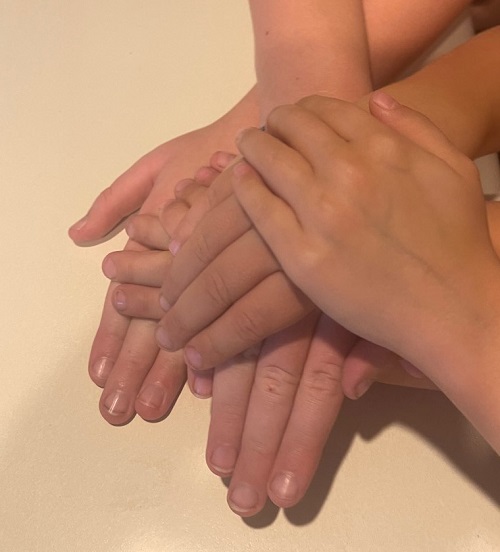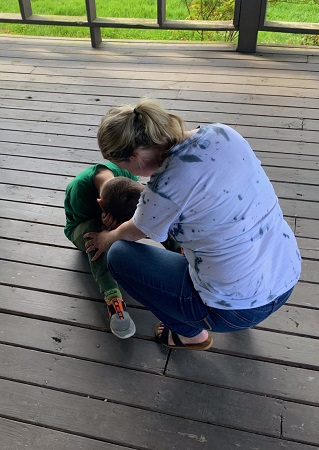Many Hands Make Light Work
 Do you have little helpers who remind you that many hands make light work? Maybe your children or grandchildren? Perhaps a neighbor or friend?
Do you have little helpers who remind you that many hands make light work? Maybe your children or grandchildren? Perhaps a neighbor or friend?
Many of my favorite experiences involve children who helped me. Their help may have meant extra time or a bigger mess. Yet, what fun. They learned to work together and to help one another.
Many hands make light work means the more who work together, the easier and faster the work.
Work may be on:
- A garden’s long hard rows to hoe
- Large family meals
- Caregiving for family members
- A youth group project
Many hands may not make the work easy as pie. It will make the work easier.
Many hands make light work applies to all areas of life.
- Jobs
- Family
- Friends
- Community
- Church
- Volunteer work
Take advantage of opportunities to lend a helping hand.
Supporting one another makes life better for everyone – the one who receives help plus the one who helps.
“May the favor of the Lord our God rest on us; establish the work of our hands for us—yes, establish the work of our hands” (Psalm 90:17 NIV).
Thanks to Tracy Crump for the suggestion and to Karen Atwood for the photo.
Do you have an expression you want explained or a thought about this one? If so, please comment below.
Subscribe to receive my weekly posts by email and receive a free copy of “Words of Hope for Days that Hurt.”
If you enjoyed this post, please share it with your friends.


 “Tell me the truth. You will feel better if you do. Confession is good for the soul.”
“Tell me the truth. You will feel better if you do. Confession is good for the soul.” You made your bed, you must lie in it has nothing to do with making a bed. The expression focuses on behavior.
You made your bed, you must lie in it has nothing to do with making a bed. The expression focuses on behavior. A rolling stone gathers no moss is more than a
A rolling stone gathers no moss is more than a 
 I watched my Granny Childress sew many times. Sometimes she used a sewing machine like this one. Sometimes she sewed by hand. Either way, she knew a stitch in time saves nine. In other words, a little work now prevents a lot of work later.
I watched my Granny Childress sew many times. Sometimes she used a sewing machine like this one. Sometimes she sewed by hand. Either way, she knew a stitch in time saves nine. In other words, a little work now prevents a lot of work later.